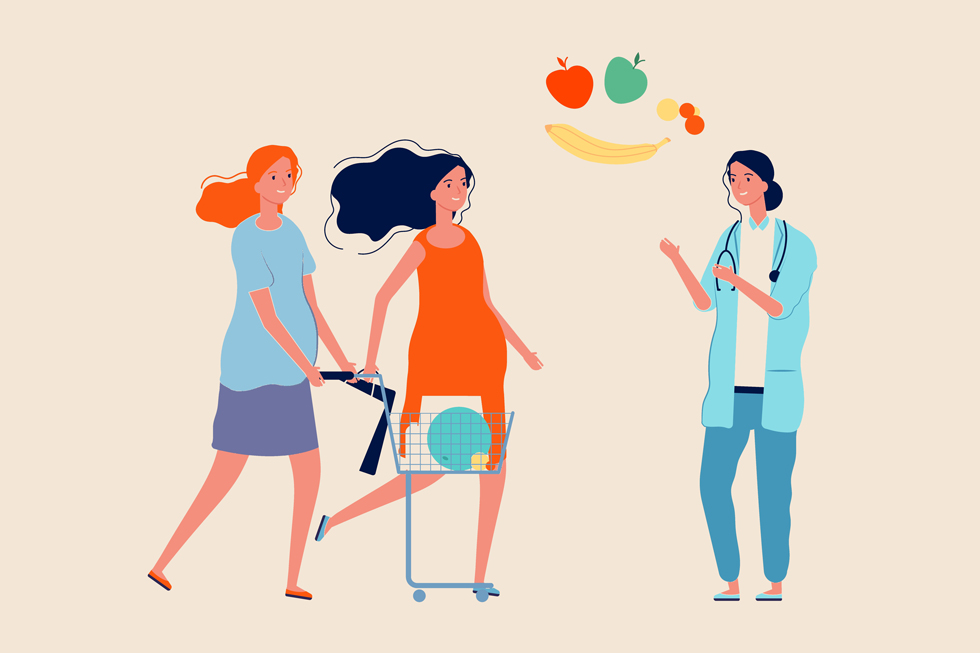If you’re trying to have a baby you probably know there are ways to either favour or hinder the possibility of getting pregnant, and what you eat actually factors in the equation.
Female infertility can be caused by a number of factors and a proper diet is not a godsend. The first thing to do is to ascertain that conception problems are not pathology-related (e.g. genital infections, endometriosis, polycystic ovary syndrome, serious uterine fibroids, hormonal imbalance). However, unhealthy lifestyles too – such as a bad diet – can be detrimental to your fertility, as confirmed by several scientific publications and studies on the link between nutritional factors and infertility.
Increasing the intake of wholemeal cereals, omega-3 fatty acids, fish and soybeans and reducing the consumption of trans fats (a type of non-saturated fats contained in some food) can boost your chance of getting and staying pregnant.
Dr. Luciana De Lauretis, Head of the Fertility Centre of Istituto Clinico Città Studi in Milan, says “a correct maturation of the ovum requires several nutritional factors to be perfectly balanced: glucose, proteins, amino-acids, fatty acids, vitamins, oligo-elements. There is a critical relationship between body mass and a correct endocrinal function, hence with female fertility. In fact, excess or lack of visceral fat causes irregular menstrual cycles or can actually eliminate them: these are the effects of ovulation failure or anomalous ovulation. Conception absolutely requires appropriate ovulation”.
We often read about diets and scheduled eating that can help you get pregnant. As a matter of fact, though, there is no perfect, one-size-fits-all diet for all women. A number of factors must be considered, such as the build, the daily requirements and the personal tastes of each woman. There are, however, two cornerstones: the quantity of food consumed must match the actual daily intake required, and the food must vary as much as possible. Plus, there is some food that can surely help conception and make you more fertile.
The daily menu for maintaining good fertility should always include food rich in Omega-3, plenty of which is to be found in dried fruit and oily fish (anchovies, sardines, mackerel, salmon, etc.). They provide essential fats whose effects are similar to the effects hormones have on the central nervous system, on the retina and on gonads. In particular, hexanoic caproic acid and docosahexaenoic acid (DHA), plenty of which is found in fish living in cold waters, such as salmon, play a crucial role in the development and maturation of the brain and of the reproductive system.
Food you should constantly consume during the period preceding the conception must contain folate: leafy green vegetables, such as spinach, chard, rocket salad and broccoli. In fact, folate – when taken before conception – helps correct possible maternal anaemias, which can hinder fertility and, during pregnancy, can favour the transmission of hereditary elements.
Other food you should always consume to protect your fertility is food with a high content of polyphenols. These are antioxidant substances found, in great quantities, in fresh vegetables and fruit, dried fruit, evo oil and cocoa.

Recent Comments